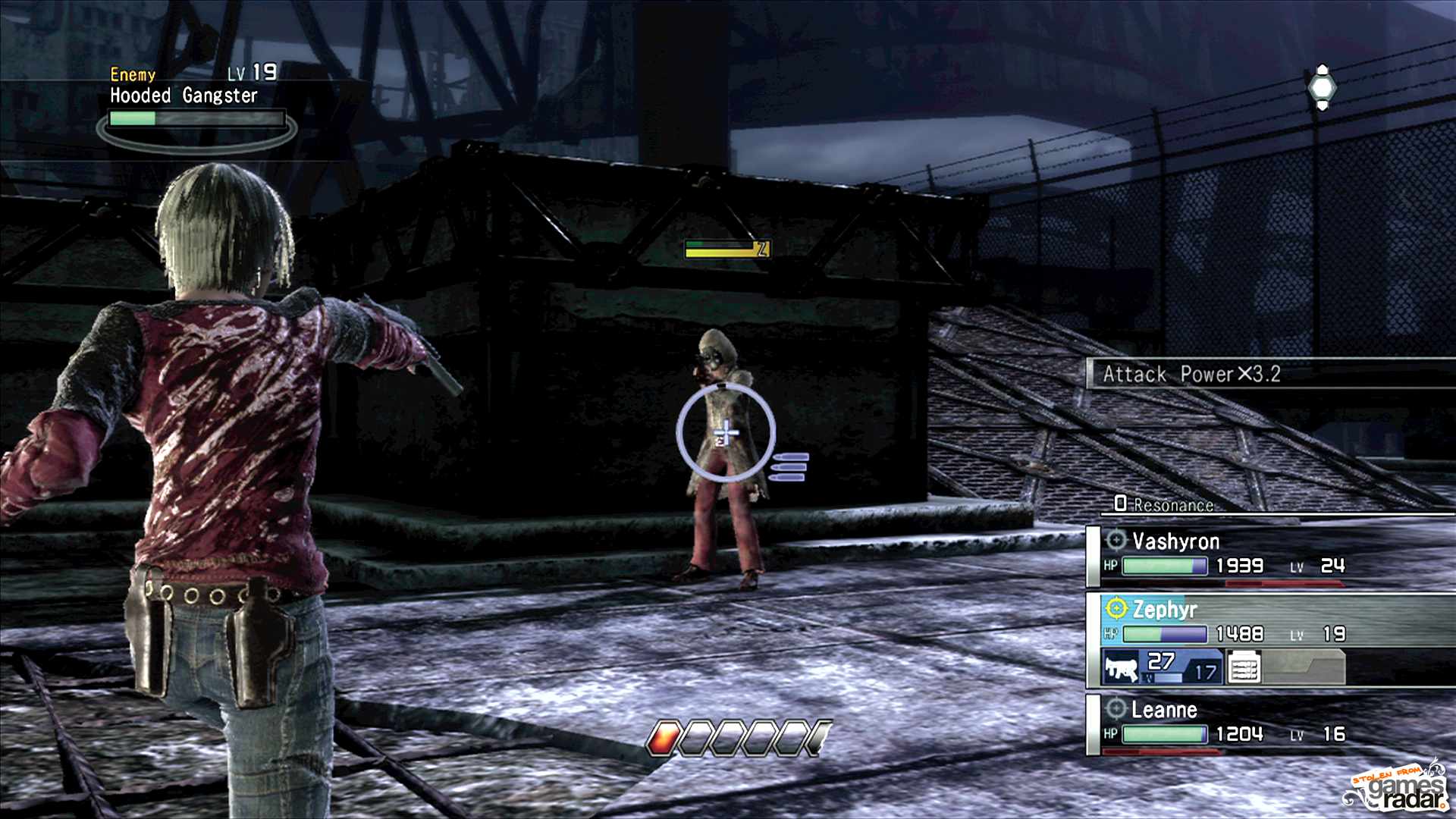GamesRadar+ Verdict
Pros
- +
Strategic battle system
- +
A giant experience
- +
Guns
- +
guns
- +
guns!
Cons
- -
Incessant grinding
- -
Huge difficulty spikes
- -
Cliched characters and vague story
Why you can trust GamesRadar+
While Final Fantasy tries to be progressive by appealing to the masses – simplifying and streamlining to the point where where some series’ fans are feeling left out – Resonance of Fate raises an eyebrow and then heads in completely the opposite direction.

Resonance of Fate is unconcerned with flashy graphics and simple systems and it’s certainly not big on putting a grand story across in hours of uninterrupted cutscenes. Instead, developer Tri-Ace has focused primarily on its battle system and its world. Hungry for a new JRPG? Provided you’re not scared off by complexity, this could be the one to go for.
It’s the most forward-thinking RPG to come out of Japan in years. When Tri-Ace said that its fighting system should appeal as much to RTS fans as it should to RPG heads, they were being honest. A true blend of strategy, action and role-playing, scraps are a genuine pleasure to play. If it weren’t for the difficulty spikes (more on that gripe later) we’d be bold enough to name it the best RPG battle system of the generation. As it is, we’ll rather settle for saying ‘it’s right up there’.

The game begins in Ebel City, a small town situated on level four of the Basel. The Basel itself is the game’s entire world, a monolithic structure with built-in air purification systems, constructed to serve as a human habitat after Earth’s surface is coated with poisonous gas. It’s a beautiful place to kick-start the story: a town built in between whirring gears and flywheels, where rays of sunlight stream through the teeth of the cogs above, filtering down to the cobbled streets in a clockwise pattern of moving prisms. And it’s the one standout moment in a first hour filled with confusion during which you’re hurried through a poorly written battle tutorial and introduced to the daunting overworld.
Resonance of Fate certainly makes no attempt to ease you in gently. Its story deals exclusively in subtleties (we only began to really understand what was going on at around the 15 hour mark) and its systems reveal themselves exclusively to persistent and curious gamers. There’s absolutely no finesse shown in the tutorials either. Though we had wished otherwise, battle mechanics aren’t rolled out one-by-one. You’re handed the entire enchillada from the beginning and are expected to swallow it whole, no questions asked. Which is not really what you need when Resonance’s components are as cryptic as they come.
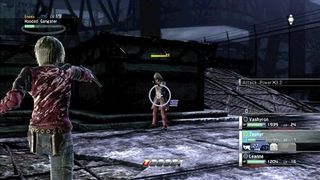
Through trial, much error and repeated use of the ‘Retry’ button the nuances of the combat begin to reveal themselves. And that’s when it finally hits home. Though its out-of-town visuals may be beyond ugly when compared with the expensively glossy FFXIII environments, beneath the grime sits a core system which feels exceedingly fresh and exciting.
Fighting is all about piling on the regenerating scratch damage with your machine guns, then quickly turning this into permanent damage with a handgun; not all that dissimilar from the philosophy behind Street Fighter IV’s Focus Attacks. Roaming ranges are limited, but you’re always able to exchange a bezel from your Hero Gauge – essentially your team’s shield meter – to set a path for your character of choice to follow while you go all Jesse Ventura with their weapons. Destroy an enemy’s defensive shields (or kill them outright) and you’ll earn a new bezel to beef the gauge back up.
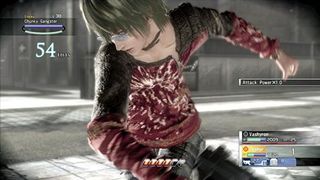
Outside of battle, movement about the overworld is limited by items known as energy hexes. Essentially jigsaw pieces, these are harvested from slain enemies and plugged into the ground. This then opens up pathways to new elevators dotted about the levels (and in a seemingly scattershot pattern it must be said – the Basel engineers were clearly on something). The mechanic turns out to be an elegant one – neatly preventing wayward exploration by restricting the necessary shapes and colours – and having to carefully pick and choose your routes is more fun than it sounds. A word to the wise though: we wasted all of our hexes opening up an entire floor at the promise of a great secret. All it turned out to be was a measly teleport back to the base, and left us seriously low on path-opening supplies come the next few missions.
More info
| Genre | Role Playing |
| Description | This new RPG from the makers of Valkyrie Profile and Star Ocean, may have a bland story that isn't too well told, but the at first complex combat has satisfying depth for those willing to look for it. |
| Platform | "Xbox 360","PS3" |
| US censor rating | "Teen","Teen" |
| UK censor rating | "16+","16+" |
| Release date | 1 January 1970 (US), 1 January 1970 (UK) |

Metaphor: ReFantazio wanted to fix the JRPG grinding problem, but Atlus went too far at one point and accidentally broke the whole combat system
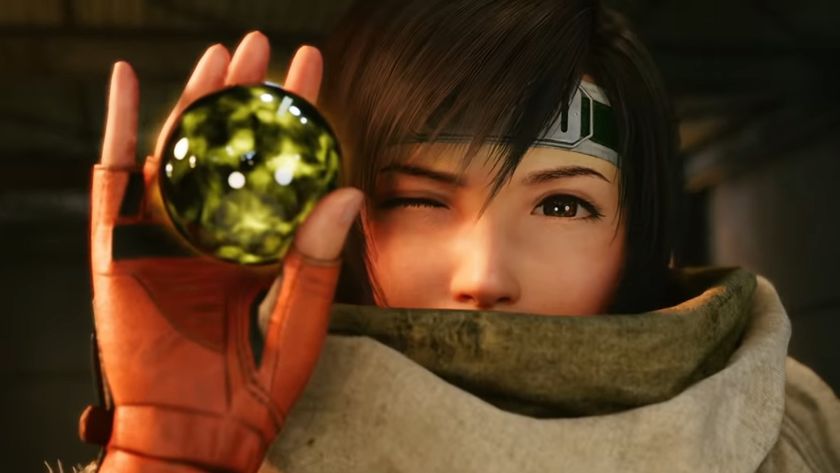
Final Fantasy 7 Remake and Rebirth battle director says combining everything he learned on Monster Hunter: World with Square Enix's technology and unique skills created a "chemical reaction"
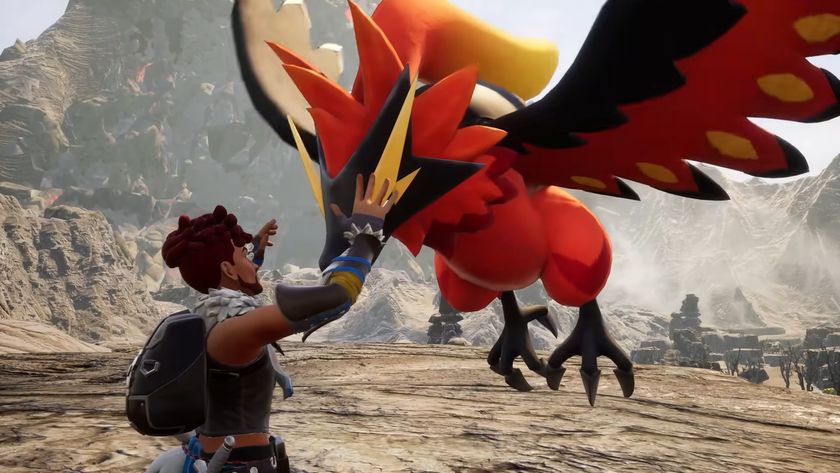
"Minutes after Palworld released," Pocketpair was already getting game pitches from "some really big names" before it even set up its own publisher: "No one has money at the moment"
